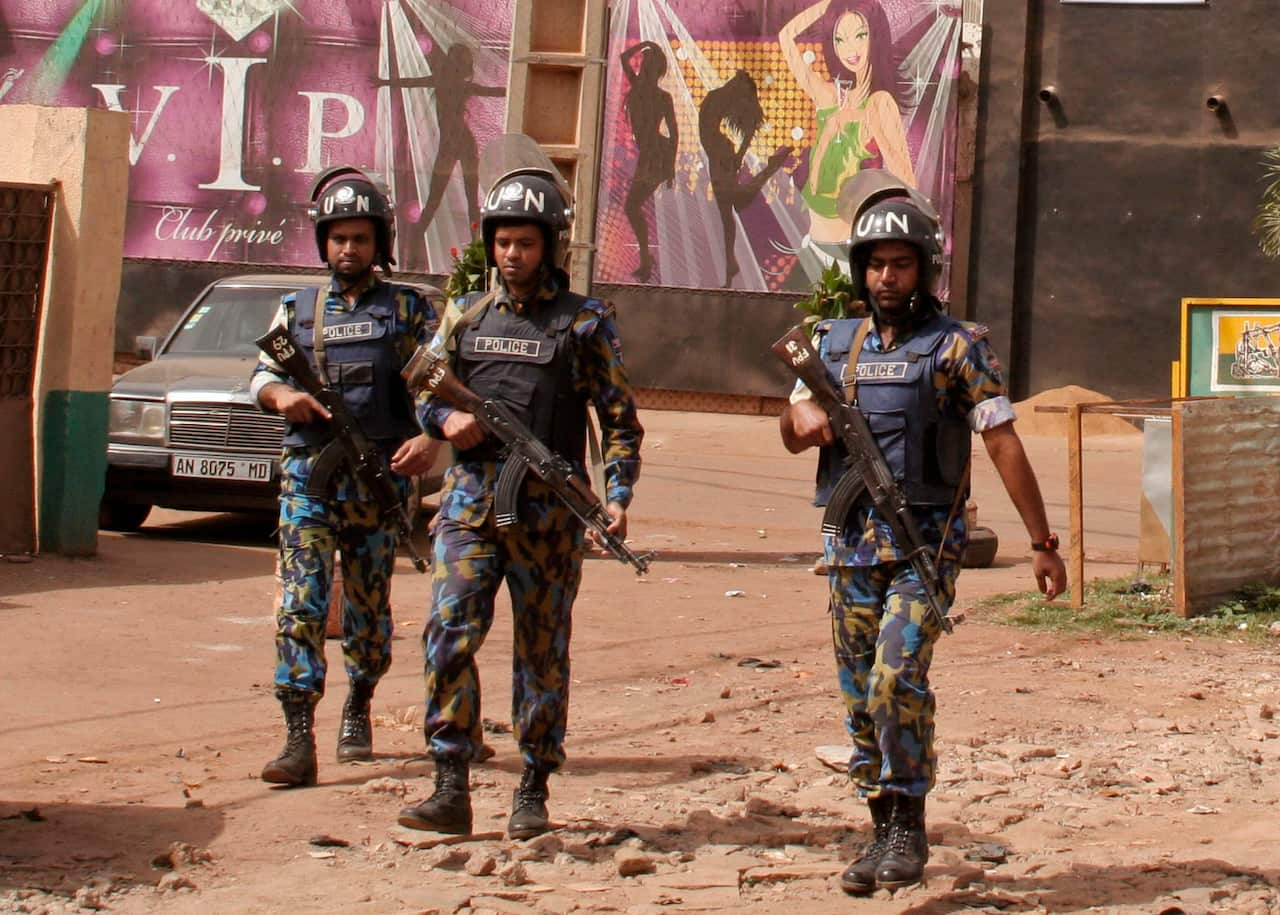Bodies recovered from a massacre of almost 100 people by a Malian ethnic militia included at least 24 children, many of them shot in the back, the prime minister said during a visit to the crime scene on Tuesday.
Attackers believed to belong to the Fulani ethnic group raided the rival Dogon village of Sobane Da, in central Mali, between Sunday and Monday.
They killed at least 95 people and burned houses to the ground in an escalation of the tit-for-tat ethnic slaughter that has engulfed the mostly Saharan nation this year.
"All these victims of horror and barbarity remind us of our responsibility as leaders to reinforce and accelerate security," said Boubou Cisse, who became prime minister in April after his predecessor stepped down following an earlier massacre by Dogon gunmen on a Fulani village in March.
"May the soul of these innocent victims of discord and hatred rest in peace." Ninety-five people were killed, according to an early toll that remained unconfirmed on Tuesday.
Ninety-five people were killed, according to an early toll that remained unconfirmed on Tuesday.

President of Mali Ibrahim Boubacar Keita. Source: AAP
Prime Minister Boubou Cisse, who visited the village with other senior ministers, paid tribute to the "innocent victims of the discord and the hate", according to a government statement.
"All the victims of the horror and the barbarism remind us of the responsibility incumbent upon us as leaders to reinforce and accelerate security, economic and political efforts for peace and reconciliation," he said.
The attack on the village of Sobane Da - also called Sobane-Kou - began on Sunday evening and continued well into the night, according to witnesses.
Survivors described attackers arriving on motorbikes and in trucks and surrounding the village of roughly 300 people.
They murdered anyone who tried to escape and torched their homes, the survivors said.
On Monday, a security source said the Dogon village had been "virtually wiped out".
The killing came less than three months after nearly 160 members of the Fulani ethnic group were slaughtered by a group identified as Dogon. President Ibrahim Boubacar Keita cut short a visit to Switzerland and was expected to return to Bamako on Tuesday.
President Ibrahim Boubacar Keita cut short a visit to Switzerland and was expected to return to Bamako on Tuesday.

The scene shortly after a violent attack which left about 160 people dead at a village in Mali earlier this year. Source: Tabital Pulaaku
"This country cannot be run by a cycle of revenge and vendetta," he told ORTM public television in Geneva on Monday.
He called on Malians to unite to "allow our nation to survive, because this is a question of survival."
Shocked survivors
The assailants "opened fire on anything that moved," the village chief, Gouno Dara, who escaped, told AFP.
"They shouted 'Allah akbar, Allah akbar,' or 'God is greatest,'" he said.
"They then set fire to the storehouses, the homes and took the sheep and the cattle. We have nothing left. Pregnant woman are among the victims, and children too. We have lost everything."
Another survivor, Amadou Togo, said some people had had their throats cut or been disembowelled.
No one was spared - women, children, old people.
After seven hours of bloodletting, the assailants left, leaving behind bodies blackened by the flames, the villagers said.
"I have lost my wife, two sons and a daughter, my father and mother," said Jean Dara, a farmer in his thirties.
Ethnic tensions
Despite military help from France and the UN, Mali's government is struggling to quell violence that began in the north of the country in 2012, sparked by radical Islamist and Tuareg militias.
Attacks spread to central Mali, an ethnic mosaic, after a predominantly Fulani jihadist group led by preacher Amadou Koufa emerged in 2015.
Perceptions that the Fulani ethnic group as a whole was involved in the violence fuelled tensions with other ethnic groups such as Bambara and Dogon, and tit-for-tat strife followed.
The Fulani are primarily cattle breeders and traders, while the Bambara and Dogon are traditionally sedentary farmers.
France called for Bamako to "redouble efforts in the centre of the country to quickly put an end to the spiral of intercommunal violence", in a statement from the foreign ministry.
Malian researcher Ousmane Diallo, a specialist on the region, said the details of the latest attack suggested "jihadist methods". But he cautioned that the reality might be more complex, and that the attackers' motivations remained unclear.
But he cautioned that the reality might be more complex, and that the attackers' motivations remained unclear.

Armed forces provide security in Bamako, Mali. Source: AAP
On May 16, the UN peacekeeping mission in Mali, MINUSMA, announced it had recorded "at least 488 deaths" in attacks on Fulanis in the central regions of Mopti and Segou since January 2018.
In the bloodiest raid, about 160 Fulani villagers were slaughtered on March 23 at Ogossagou, near the border with Burkina Faso, by suspected Dogon hunters.
According to MINUSMA, armed Fulanis had "caused 63 deaths" among civilians in the Mopti region, also since January 2018.
There are currently about 14,700 troops and police deployed in Mali, which ranks as the most dangerous UN mission, with 125 peacekeepers killed in attacks since deployment in 2013.

